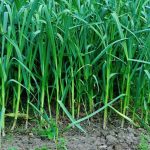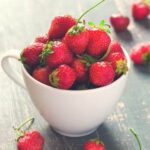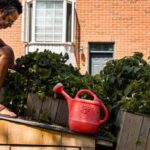Is horse poop good for vegetable gardens? This question has been a subject of debate among gardeners and agricultural enthusiasts for quite some time.
Many people believe that horse manure is an excellent source of nutrients for vegetable gardens, while others may have concerns about potential risks and drawbacks. In this article, we will explore the use of horse poop as a fertilizer for vegetable gardens, delving into its nutrient content, composting process, benefits, precautions, and practical tips for effective utilization.
When it comes to organic gardening, using natural fertilizers like horse manure can provide numerous benefits for vegetable gardens. The nutrient-rich composition of horse poop can significantly improve soil quality and enhance the growth and productivity of vegetables. However, it’s essential to understand the proper methods of using horse manure in gardening to reap its full benefits without causing any harm to the plants or the environment.
As we delve into this topic further, we will discuss the nutrient content and composition of horse manure, explore the step-by-step process of composting horse poop for use in vegetable gardens, examine the various advantages of using horse manure as fertilizer, address potential risks and precautions involved, and offer practical advice on incorporating horse manure effectively into a vegetable garden.
Additionally, we will also touch upon alternative uses for horse poop in gardening and landscaping, providing a comprehensive understanding of its versatile applications beyond just being a fertilizer.
What Is in Horse Poop
Horse manure is an excellent source of nutrients for vegetable gardens, containing essential elements such as nitrogen, phosphorus, and potassium. These nutrients are vital for the healthy growth of plants and can significantly improve soil fertility. In addition to these primary nutrients, horse manure also contains secondary nutrients like calcium and magnesium, as well as micronutrients such as iron and zinc. This rich nutrient content makes horse poop a valuable natural fertilizer for vegetable gardens.
One of the key components of horse manure is its high organic matter content. This organic matter helps improve soil structure, retain moisture, and promote beneficial microbial activity in the soil. This can result in better aeration and drainage, which is crucial for the health of vegetable plants. The organic matter also contributes to the long-term improvement of soil quality, making it more resistant to erosion and better able to support plant growth.
When properly composted, horse manure becomes even more beneficial for vegetable gardens. Composting horse poop involves a process of decomposition that breaks down harmful pathogens and weed seeds while preserving valuable nutrients. It’s crucial to compost horse manure correctly to ensure that it’s safe for use in vegetable gardens and won’t pose any health risks to humans or plants.
| Nutrient Content | Composition |
|---|---|
| Nitrogen | High organic matter content |
| Phosphorus | Secondary nutrients: calcium and magnesium |
| Potassium | Micronutrients: iron and zinc |
How to Compost Horse Poop
Composting horse poop is an excellent way to harness the benefits of this natural fertilizer for vegetable gardens. By properly composting horse manure, gardeners can ensure that it is safe to use and has fully broken down into a nutrient-rich soil amendment. Follow these steps for successfully composting horse poop for use in your vegetable garden:
1. Choose the right location: Select a well-ventilated area for your compost pile, preferably away from your home and any water sources to avoid potential contamination.
2. Mix with carbon-rich materials: To balance the high nitrogen content of horse manure, mix it with carbon-rich materials such as straw, wood shavings, or dry leaves. This will help prevent odor and promote proper decomposition.
3. Turn the compost regularly: Use a pitchfork or shovel to turn the compost pile every few weeks to aerate it and encourage even decomposition. This will also help prevent the formation of ammonia, which can be harmful to plants.
4. Monitor temperature and moisture: Keep an eye on the temperature and moisture levels of the compost pile. Ideally, the temperature should reach around 130-150°F (55-65°C) to kill off weed seeds and pathogens. Make sure to keep the pile moist but not waterlogged.
5. Allow time for decomposition: Depending on environmental conditions, horse manure can take anywhere from 6 months to a year to fully decompose into usable compost for your vegetable garden.
By following these steps, you can effectively compost horse poop for use in your vegetable garden, providing your plants with a natural and nutrient-rich source of fertilizer.
Benefits of Using Horse Poop in Vegetable Gardens
Enriches Soil Nutrients
Horse poop is an excellent source of nutrients that can enrich the soil in your vegetable garden. It contains high levels of nitrogen, phosphorus, and potassium, which are essential for the healthy growth of plants. These nutrients help improve soil fertility, promote strong root development, and enhance overall plant health. By incorporating horse manure into your vegetable garden, you can provide a natural and sustainable source of essential nutrients for your plants.
Improves Soil Structure
In addition to its nutrient content, horse poop can also improve the structure of the soil in your vegetable garden. When composted properly, horse manure helps to enhance soil aeration and drainage, making it easier for plant roots to access water and oxygen. This can result in healthier and more vigorous plant growth. The organic matter present in horse manure also helps to increase the water-holding capacity of the soil, reducing the likelihood of waterlogging during heavy rainfall.
Promotes Sustainable Gardening
Using horse poop as fertilizer in your vegetable garden is a sustainable practice that supports environmentally friendly gardening methods. Instead of relying on synthetic fertilizers that may contain harmful chemicals, incorporating horse manure allows you to utilize a natural and renewable resource.
This not only reduces chemical runoff into water sources but also contributes to the overall health and balance of the garden ecosystem. Additionally, by recycling waste from horses as fertilizer, you are participating in a more sustainable approach to gardening that benefits both the environment and your vegetables.
Precautions and Considerations
Potential Risks of Using Horse Poop in Vegetable Gardens
Using horse poop in vegetable gardens can come with potential risks, especially if not properly composted. Fresh horse manure may contain bacteria and pathogens that can be harmful to both plants and humans. E.Coli and Salmonella are two common pathogens found in horse manure that can pose a risk to the health of those consuming vegetables grown in soil amended with untreated poop.
Precautions to Take When Using Horse Poop
To mitigate the potential risks associated with using horse poop in vegetable gardens, it is crucial to properly compost it before use. Composting horse manure involves allowing it to decompose over time, which helps eliminate harmful pathogens. It is recommended to compost for at least six months before using the manure as fertilizer for vegetable gardens.
Additionally, it is important to avoid using fresh horse poop directly on edible crops. Instead, apply the composted manure to the soil several weeks before planting or mix it into the soil during preparation. This will further reduce the risk of any harmful pathogens affecting the vegetables.
Considerations for Organic Gardening
For those practicing organic gardening, using horse poop is generally acceptable as long as proper precautions are taken. However, some organic certification programs have specific guidelines regarding the use of manure in vegetable gardens. It is essential to check and comply with these guidelines if seeking organic certification for your garden. The key is to ensure that any potential risks associated with using horse poop are adequately managed while maintaining organic standards.
Tips for Using Horse Poop in Vegetable Gardens
When using horse poop in vegetable gardens, there are a few practical tips and advice that can help ensure the best results for your garden. One important thing to consider is properly composting the horse manure before using it in your garden. Composting not only helps to break down the manure, making it easier to handle and reducing the risk of harmful pathogens, but also allows the nutrients to become more readily available to your plants.
It is also important to consider the age of the horse manure when using it in your vegetable garden. Fresh manure can be too strong for delicate plants and may contain weed seeds, so it is best to use aged or composted manure for vegetable gardens. This will reduce the risk of burning your plants or introducing weeds into your garden.
Another tip for effectively incorporating horse manure into a vegetable garden is to use it as a top dressing or mixed with other organic materials. This will help improve the soil structure, increase water retention, and provide essential nutrients for your vegetables. Additionally, rotating crops and allowing proper time for decomposition between applications can help maintain a healthy balance of nutrients in your garden soil.
Relevant Data Table
| Tips for Using Horse Poop | Benefits |
|---|---|
| Properly compost before use | Breaks down manure and makes nutrients available |
| Use aged or composted manure | Reduces risk of burning plants and introducing weeds |
| Use as a top dressing or mixed with organic materials | Improves soil structure, water retention, and nutrient content |
Alternative Uses for Horse Manure
In conclusion, horse poop can be a valuable and effective addition to vegetable gardens. Its nutrient-rich composition provides essential elements for plant growth and can significantly improve soil health. Composting horse manure is a sustainable and cost-effective way to enhance the fertility of garden beds, leading to healthier and more abundant crops.
One of the key benefits of using horse poop in vegetable gardens is its ability to enrich the soil with organic matter, promoting better drainage and moisture retention. Additionally, horse manure is an excellent source of nitrogen, phosphorus, and potassium, which are essential for plant growth. By properly composting horse poop, gardeners can ensure that these nutrients are released slowly over time, providing long-lasting benefits to their vegetable crops.
While there are important precautions and considerations to keep in mind when using horse poop in vegetable gardens, such as potential weed seeds or pathogens present in fresh manure, taking the necessary steps to compost it effectively can mitigate these risks. Overall, when used thoughtfully and responsibly, horse poop can be a valuable resource for gardeners seeking natural and sustainable ways to nourish their vegetable plants.
So yes, horse poop is good for vegetable gardens when used properly as a compost material.
Frequently Asked Questions
Can I Put Horse Manure on My Vegetable Garden?
Yes, you can put horse manure on your vegetable garden, but it needs to be composted first. Fresh manure can contain harmful bacteria and burn the plants, so composting is essential.
Why Not to Use Horse Manure in Garden?
Horse manure can contain weed seeds and parasites that can harm your garden. Additionally, if not properly composted, it can also burn the roots of your vegetable plants due to its high ammonia content.
Which Vegetables Do Not Like Manure?
Some vegetables do not like manure, such as root crops like carrots and potatoes. Manure can cause these vegetables to become forked or misshapen. Additionally, leafy greens like lettuce and spinach prefer nitrogen-rich soil without excessive amounts of organic matter.

If you’re looking to get into vegetable gardening, or are just looking for some tips on how to make your current garden better, then you’ve come to the right place! My name is Ethel and I have been gardening for years. In this blog, I’m going to share with you some of my best tips on how to create a successful vegetable garden.





